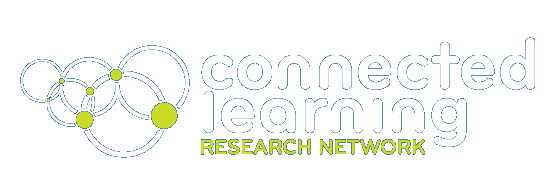The Affinity Project
Principal Investigators:
Associated Researchers and Staff:
UNDERSTANDING AND IMPROVING ADULT-YOUTH MATCHES
This project builds on findings from a recent meta-analysis of over 70 youth mentoring program evaluations, in which my colleagues and I discovered that, when youth and mentors were matched on the basis of shared interest, the effect size of mentoring doubled. Through a series of follow-up investigations, we are exploring the development of youth interests and the role of shared interest in forging close intergenerational relationships.
Drawing on a large national data set, we are mapping out the range of youth and mentor interests and examining their association with background demographic variables and outcomes.
We are also exploring the extent to which intergenerational relationships can be improved through more careful matching and, working with researchers at Harvard Business School, developing and testing an algorithm to improve adult-youth match closeness, longevity, and outcomes.
VETERAN’S HISTORY PROJECT
The Veteran’s History Project (VHP) was created in 2000 by Congress and administered through the Library of Congress (LC) with the goal of collecting oral history interviews, memories, letters, diaries, photographs, and other original materials from US veterans. Although the VHP presents rich opportunities for high school students to integrate experiential learning on topics of interest and digital media skills into their history curricula, efforts to engage youth and schools have been uneven. There has been insufficient scaffolding for students as they embark on securing interviews with veterans, conducting and videotaping interviews, preparing the videos for submission, and completing the required steps for submission and acceptance. Based on these challenges, and the desire to engage adults in meaningful ways with youth, veterans, and schools, I have been working with the VHP, the National Mentoring Partnership, WGBH, and members of MacArthur’s Digital Youth Network (DYL) to create a national VHP mentoring program. Since June 2011, we have piloted a VHP mentoring program with a small group of youth aged 15-17. Based on this experience, we are developing a website with a strong youth footprint that will provide access to PBS documentary footage through American experience and other archives. Planning for “Video Boot camps” at PBS member stations for post-production is underway. Members of Free Spirit Media are also collaborating with us on this project.
SCAFFOLDING INTERESTS
I am collaborating with with Christian Greer, Program Director of the Hive Learning Network, to explore how mentoring might be more intentionally integrated into the DYN. Within this context, we will be examining how interests develop and the role of intergenerational relationships in shaping and supporting these interests. We will explore how mentors help adolescents make connections between interests and their identity and how settings can be structured to broaden exploration and expedite the search for resonate interests. We will also examine how digital media can be structured to connect youth with a network of adults and other youth who share their interests. Based on this work, we are planning to implement a pilot program that will various mentoring strategies, potentially including the training of DYN in best practices of mentoring youth, Youth Initiative Mentoring, and peer mentoring.
Blogs
Publications
- The Interest-Driven Pursuits of 15 Year Olds: “Sparks” and Their Association With Caring Relationships and Developmental Outcomes
- Connected Learning: An Agenda for Research and Design
- The Test of Time in School-based Mentoring: The Role of Relationship Duration and Re-Matching on Academic Outcomes.
- How Effective Are Mentoring Programs for Youth? A Systematic Assessment of the Evidence.
Videos
In the News
Updates
What It Takes: All of Us
This has been a groundbreaking year for the field of youth mentoring. With little fanfare, two large-scale, rigorous evaluations have been released, both of which suggest mentoring relationships have meaningful impact on young people. First, the Centre for Addiction and Mental Health and Big Brothers Big Sisters Canada announced a very ambitious, ongoing study. Although still early in the study, researchers David DeWit and Ellen Lipman have found preliminary results that show children with mentors exhibiNew Research (and a story) about teachers
Sometimes a simple anecdote can illustrate a point far better than mounds of research. It was written by Jerome Groopman, M.D., Professor of Medicine at Harvard Medical School, Chief of Experimental Medicine at Beth Israel Deaconess Medical Center. In this excerpt, from a recent New York Review of Books, Groopman highlights the vital importance of teachers that “get” their students and understand their strengths. I never learned to type. The best I can do is hunt and peck with two fingers while lA Guide to Connected Learning Sessions At DML2013
Compiled by Courtney Santos and Amanda Wortman










